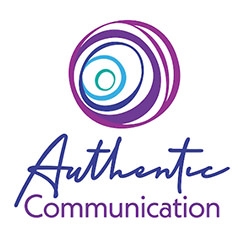

Search Results: time
-
Our craving for love, acceptance, and approval can lead us to show only parts of ourselves and hide others. This lack of authenticity breeds disconnection and mistrust, leading to those very needs not being met. Once I accept myself, being authentic is easier. And then people in my life can love me for who I really am, warts and all.
-
The energy of the most private events of our lives (such as sex) can ripple out and affect everything we do, like the ripples of a rock thrown in a pond. Instead of segregating -or sometimes denying- parts of ourselves, we can bring our blind spots and our shadows in self and relationships into the light. Having growth in a private life can transfer onto other areas of life.
-
Trainer Tip: It can help us bring joy into our lives to connect to the needs we serve for doing things. While our activities may not always be fun, understanding their purpose and their value to our lives can help us shift the energy behind the action and have a more positive experience. Consider the underlying needs activities meet, and decide if they are worth it to you.
-
Trainer Tip: It can be painful spending our days pretending we’re not who we are. For example, we may try not to be passionate in our expression because if we think its “too much” for people. This can lead to trying to figuratively to squeeze ourselves into small spaces in life. Alternatively, we can choose who to share our passion with, and speak our truth to. Today, notice what you need and to work actively to meet your needs.
-
This anecdote illustrates how a young man had the social awareness to consider how male conditioning may bring up competitiveness in his interactions with another man. The young man offered transparency and checked for consent in a way that shows an embodiment of power-with, togetherness, consideration, care, collaboration... and all without displaying any formal NVC training, and without looking to impress.
-
Dear readers,
I’m writing this letter from Bangalore, India. The monsoons have begun in the South of India after a long, dry summer and we’re grateful for the rain.
-
Dear friend,
There is an article from some years back by Dan Rather called, Why America Needs More Empathy. It touched me deeply when I first read it, and I happened to stumble upon it again recently. It feels so relevant and alive for me right now because he reminded me of what my parents taught me about helping other people.
-
-
Trainer Tip: See imperfect NVC moments as learning opportunities, not failures.
-
LoraKim Joyner addresses the sense of overwhelm that can accompany holding the needs of the many. Practicing self-empathy is a pathway to living in the tension of mutually holding my needs and the needs of others.
-
As a beginner in NVC, you might find your attempts to practice your NVC only increases conflict, disconnection and upset in your interactions with people. Or perhaps people start seeing you as inauthentic. From there, you may find yourself sinking deeper into self-judgement. In this article, Jim Manske shows us how to shift these potential unintended outcomes, into deeper NVC consciousness that brings in more warmth, presence and open-hearted connection.
-
What parts of yourself or others are hard to embrace, understand or even notice? What parts do others have difficulty embracing, understanding or noticing? Why do we condemn, loathe, hate, deny, judge, blame or feel shame around certain needs, feelings and parts of self and/or others? This article talks about the hidden parts of ourselves and others that shapes views and behaviours.
-
Listen to CNVC Certified Trainer Dian Killian guide and ease you into a more natural expression of empathy. This is a three person exercise. Listen in and then give it a try!
-
Falling in love is quite an experience, especially when it comes to that moment of saying 'I love you'. So what happens once you're in a relationship but still need to express the way you feel? Sometimes people feel like just saying 'I love you' is too impersonal or unspecific. So in this Life Hack, we give you some tips on how Nonviolent Communication can help set the mood with your loved ones.
-
Whether privileged or not, its not easy to see the humanity of others in different social locations, especially if their actions have unwanted impacts and have left behind our humanity. Aiming for “both sides hearing each other” empathically, and to focus on effect rather than intent when we have more privilege, may theoretically lead to liberation. Yet, in practice it can reinforce rather than transcend power differences -- unless there's specific ways to focus attention and choice. Here, its important to transform expectations into working with willingness, and within our own terms and timetable.
-
Join Mary Mackenzie, Certified NVC trainer, as she offers ways to incorporate NVC empathy guesses, feelings and needs into everyday conversations. This approach is geared towards adding deeper connection to the natural flow of conversations. The technique has become known as Street Giraffe.
-
Taking a look at how our unconscious biases often go unexamined and unchallenged.
-
-
Exploring ways to stay compassionate and connected when someone seems angry or controlling.
-
Listen to this audio to learn the value of focusing on needs in an NVC model, either for the first time or as a refresher course. Living from a needs-consciousness creates abundance, clarity and choice. Using three examples from participants, Mary guides the group towards identifying and then connecting with the needs of both parties involved in each situation. It becomes clear very quickly that people choose different ways to support their needs; and many times they have the same needs in a given situation. When we understand this, we are able to create peace in our relationships and negotiations.
“Everything someone does or says is an attempt to meet a need,” says CNVC Certified Trainer Mary Mackenzie. This simple statement is a foundational understanding in Nonviolent Communication; once you gain skills at living in a “needs-consciousness” you will literally change your life and your perception of the world, and improve all of your relationships.
Quick Links

Stay in Touch!
We value your privacy, won't share your email address and you can easily unsubscribe any time.




















